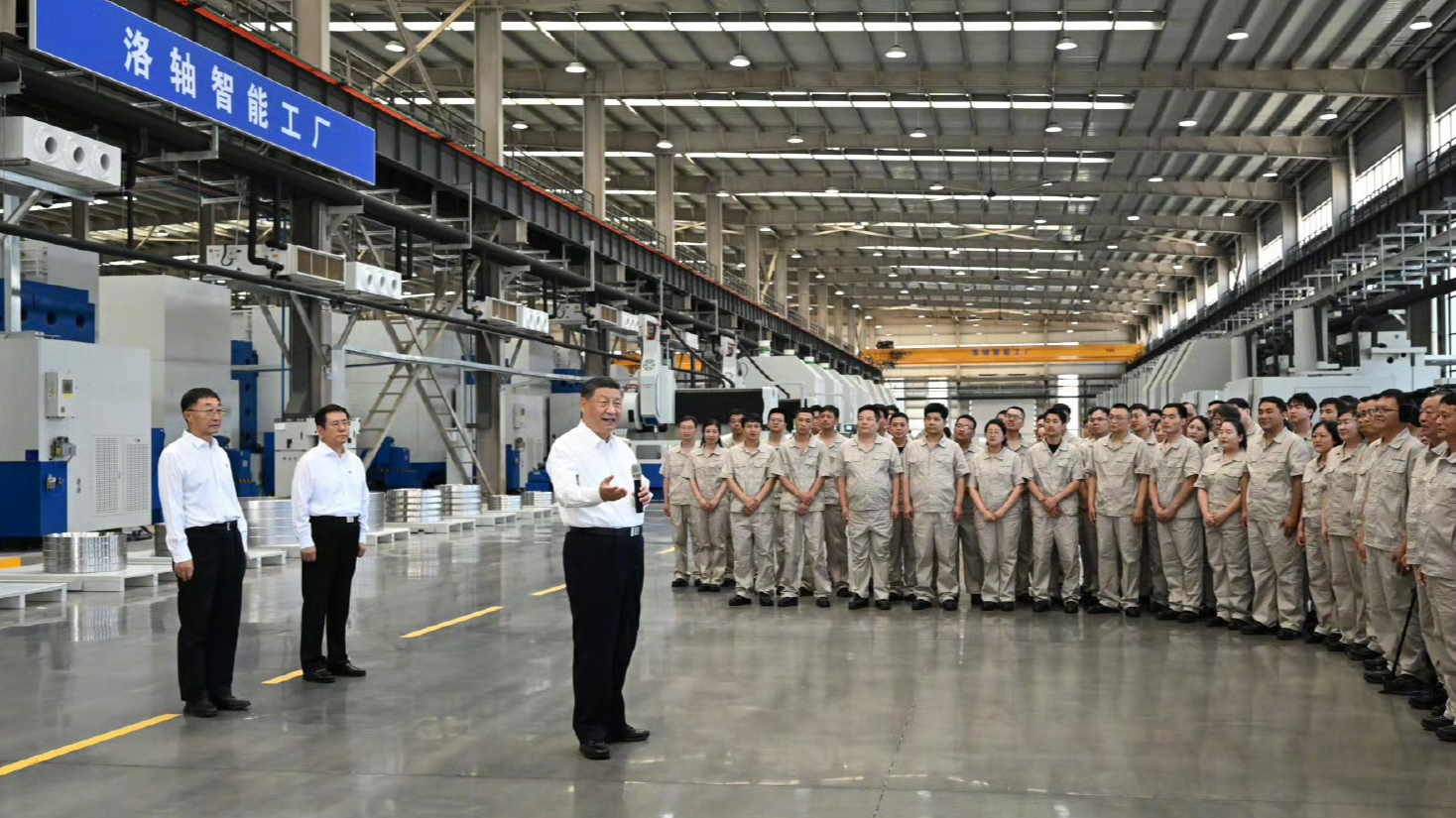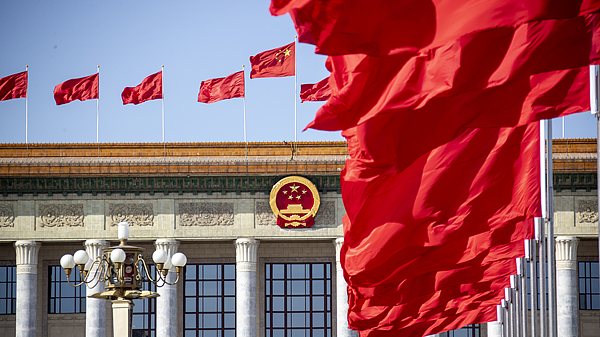By continuing to browse our site you agree to our use of cookies, revised Privacy Policy and Terms of Use. You can change your cookie settings through your browser.
I agree
Search Trends
CHOOSE YOUR LANGUAGE
- Albanian Shqip
- Arabic العربية
- Belarusian Беларуская
- Bengali বাংলা
- Bulgarian Български
- Cambodian ខ្មែរ
- Croatian Hrvatski
- Czech Český
- English English
- Esperanto Esperanto
- Filipino Filipino
- French Français
- German Deutsch
- Greek Ελληνικά
- Hausa Hausa
- Hebrew עברית
- Hungarian Magyar
- Hindi हिन्दी
- Indonesian Bahasa Indonesia
- Italian Italiano
- Japanese 日本語
- Korean 한국어
- Lao ລາວ
- Malay Bahasa Melayu
- Mongolian Монгол
- Myanmar မြန်မာဘာသာ
- Nepali नेपाली
- Persian فارسی
- Polish Polski
- Portuguese Português
- Pashto پښتو
- Romanian Română
- Russian Русский
- Serbian Српски
- Sinhalese සිංහල
- Spanish Español
- Swahili Kiswahili
- Tamil தமிழ்
- Thai ไทย
- Turkish Türkçe
- Ukrainian Українська
- Urdu اردو
- Vietnamese Tiếng Việt
Copyright © 2024 CGTN.
京ICP备20000184号
CHOOSE YOUR LANGUAGE
- Albanian Shqip
- Arabic العربية
- Belarusian Беларуская
- Bengali বাংলা
- Bulgarian Български
- Cambodian ខ្មែរ
- Croatian Hrvatski
- Czech Český
- English English
- Esperanto Esperanto
- Filipino Filipino
- French Français
- German Deutsch
- Greek Ελληνικά
- Hausa Hausa
- Hebrew עברית
- Hungarian Magyar
- Hindi हिन्दी
- Indonesian Bahasa Indonesia
- Italian Italiano
- Japanese 日本語
- Korean 한국어
- Lao ລາວ
- Malay Bahasa Melayu
- Mongolian Монгол
- Myanmar မြန်မာဘာသာ
- Nepali नेपाली
- Persian فارسی
- Polish Polski
- Portuguese Português
- Pashto پښتو
- Romanian Română
- Russian Русский
- Serbian Српски
- Sinhalese සිංහල
- Spanish Español
- Swahili Kiswahili
- Tamil தமிழ்
- Thai ไทย
- Turkish Türkçe
- Ukrainian Українська
- Urdu اردو
- Vietnamese Tiếng Việt
Copyright © 2024 CGTN.
京ICP备20000184号
互联网新闻信息许可证10120180008
Disinformation report hotline: 010-85061466













Editor's Note:
Tariffs dominate the headlines – but are they masking deeper threats? CGTN's Yang Yan argues that Trump's "cry wolf" trade strategy distracts from the real danger – America's internal structural decay. As public trust erodes and institutions falter, the fable becomes a warning not about foreign competition, but about a democracy too fragmented to face real crises. When the actual "wolf" arrives – economic, constitutional, or democratic – will anyone be ready to respond? The article reflects the author's opinions and not necessarily those of CGTN.
The most disorienting move since last weekend came from U.S. Customs and Border Protection, which announced tariff exemptions on electronics – only for Trump to declare two days later that they were temporary and would be reclassified under a different tax category. Once again, the U.S. tech sector and global markets were whiplashed by his erratic trade posture. On Tuesday, a White House fact sheet on a Section 232 investigation revealed that some Chinese exports now face tariffs as high as 245 percent. A spokesperson for China's Commerce Ministry dismissed the move as a "meaningless tariff numbers game," adding that "China will pay no heed to it."
Does this remind you of something from childhood? Yes – "The Boy Who Cried Wolf," one of Aesop's most enduring fables. Its message is simple and timeless: lie often enough, and even when you speak the truth, no one will listen. Now, imagine that boy taking up permanent residence in Donald Trump's political playbook. With his tariff policies swinging wildly from one extreme to another, we're left asking: how is he still politically able to cry wolf without consequence – even as the economic toll mounts at home and abroad? What chapter of the fable are we in now – and more importantly, what is the real "wolf," and when will it finally arrive?
The American democratic breakdown that lets the boy cry wolf
The U.S. democratic system was built on a framework of tension: executive ambition balanced by legislative oversight, tempered by judicial review, and held accountable by a free press. But that foundational triad of checks and balances has begun to buckle. With both chambers of Congress now under Republican control, the institutional guardrails meant to constrain executive overreach have eroded. Partisan loyalty increasingly overrides constitutional responsibility, granting President Trump broad leeway to sidestep democratic norms.
This is no longer a theoretical concern. Through executive orders, loyal appointees, and a party apparatus unwilling to confront him, Trump has issued sweeping claims and volatile policy threats – especially in trade – with alarming frequency and with little institutional resistance. In this environment, crying wolf isn't a political gaffe – it's a political strategy. And it thrives not despite institutional weakness, but because of it. What once served as a cautionary tale about the dangers of lying now serves as a blueprint for power. Media fragmentation, ideological tribalism, and the obsessive pursuit of reelection have created a protective shield around deceit. In a healthy democracy, repeated falsehoods would corrode a leader's credibility. In today's U.S. political climate, however, deception isn't disqualifying – it's often rewarded. When a president is repeatedly believed despite clear contradictions – by segments of the media, the public and his own party – the cycle will endure and the damage doesn't stop at credibility. It extends to governance, economic stability and far beyond.
The real 'wolf' and the real 'wolf' moment
Donald Trump's tariff policies have long followed a familiar "cry wolf" pattern. Like the boy in Aesop's fable, he has repeatedly overpromised and underdelivered – once declaring that "trade wars are good, and easy to win." The results told a different story: American farmers and manufacturers were battered by retaliatory tariffs, global markets reeled, and economists across the spectrum dismissed the policy as reckless. Yet today, Trump recycles the same myth, claiming that new tariffs will somehow generate "trillions" to pay down national debt and slash taxes – despite no credible economic analysis to support it. Markets immediately panicked, once again exposing the gap between bluster and reality. His strategy remains unchanged: loud proclamations, economic disruption and no substantive results.
But Trump is not just crying wolf – he's warning of the wrong one. In his narrative, the danger always lies beyond America's borders: unfair trade, foreign rivals, bad deals. Yet the real threat isn't external. It's internal.
The U.S. is grappling with serious structural weaknesses: deepening inequality, crumbling infrastructure, an underfunded education system, unaffordable healthcare, rising corporate monopolies and political paralysis. Blaming globalization or foreign competition is an easy applause line, but it obscures these urgent domestic challenges. Tariffs and trade wars won't rebuild the middle class or secure America's long-term future. Pretending they will is not just deceptive – it's dangerously self-defeating.
And that brings the real "wolf" moment. After years of false alarms, the public grows fatigued, cynical and divided. When the actual crisis comes – whether economic, geopolitical or constitutional – it may find a public too numb to respond. That is the true peril of unchecked deception: not that the boy won't be believed next time, but that no one will recognize the real danger when it arrives. And by then, it may be too late.
(Cover: VCG)